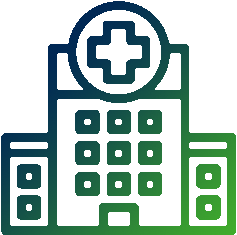Patients and health systems deserve clinicians thriving and operating at their best.
A New Kind of Clinical Decision Support Company
EvidenceCare's clinical decision support platform is EHR-agnostic and content-agnostic with a focus on empowering better care decisions and improving hospital margins.
Doctors don’t need more invasive technology.
They need the right information at the right time.
Our products are designed with our end-users in mind for optimized clinical workflows.

Trusted by Top Health Systems






Clinical Decision Support Companies
Experience the revolution in healthcare with clinical decision support software, empowering medical pros to make savvy, punctual decisions like never before! Harnessing the power of artificial intelligence and data analytics, clinical decision support companies foster streamlined clinical workflows that improve patient outcomes and reduce medical errors.
By incorporating relevant patient data, evidence-based guidelines, and cutting-edge medical research, clinical decision support software companies support clinicians in diagnosing, preventing, and managing diseases more effectively.
Additionally, clinical decision support software empowers healthcare providers to develop personalized treatment plans, taking into account each patient’s unique needs and preferences.
Simply put, clinical decision support software not only levels up the quality of patient care but also keeps health systems in pace with fast-evolving medical knowledge.
Some examples of how these systems support medical professionals include:
-
- alerting them to potential drug interactions
- providing recommendations for dosage adjustments
- suggesting relevant tests for diagnosis
- giving appropriate bed status documentation
- reducing unwarranted care variation
Furthermore, the best kind of clinical decision support software benefits:
-
- Physicians
- Nurses
- Utilization Review teams
- Revenue Cycle and Hospital Administrators
With an array of functionalities offered by various vendors, it is imperative to understand your organization’s specific needs and objectives to identify the most appropriate clinical decision support software technology.
Integration capabilities, user-friendliness, and customization options should be carefully considered.
Seeking insights and feedback from industry peers who have successfully implemented clinical decision support software is extremely valuable, providing you with a clearer vision and roadmap toward making a well-informed decision.
Taking the time to evaluate and select the right clinical decision support vendor is an investment in the future success of your organization and the well-being of your patients.
The potential of CDSS to revolutionize the healthcare field is truly remarkable, as it continues to expand its functionality and enhance the way medical professionals make informed decisions.
Through these systems, doctors and nurses can access:
-
- critical data more easily
- collaborate on patient care
- and reduce errors in diagnosis and treatment
This integration of technology and medicine not only elevates patient outcomes but also improves efficiencies within the healthcare system, leading to better use of resources and cost savings.
Clinical Decision Support System Examples
In today’s rapidly evolving healthcare landscape, clinical decision support companies have created tools that have become essential for clinicians to optimize patient care.
Imagine a busy physician navigating through heaps of patient data or medical guidelines and journals, trying to make the best decision in a limited timeframe. This is where clinical decision support system benefits step in, using complex algorithms to analyze data and provide evidence-based recommendations tailored to individual patients.
Among the market leaders in this industry are traditional clinical decision support companies, such as Oracle Cerner, Epic Systems, and MEDITECH, which have crafted solutions in the form of their EHR systems to aid hospitals in collecting and storing relevant patient information.
Another remarkable example is IBM’s Watson for Oncology, which sifts through massive medical databases and presents the most relevant treatment options for cancer patients, but even IBM admitted this product is in its infancy.
Prescriber360 is a clinical decision support company that optimizes medication management by analyzing patient history and offering optimal drug therapy choices.
Popular clinical decision support company, UpToDate, acts as a comprehensive medical resource that provides clinicians with easy access to the latest research, clinical trials, and treatment recommendations, effectively addressing knowledge gaps in real-time.
Similarly, Elsevier uses its extensive clinical content library to help practitioners get evidence-based guidelines into their care process.
As healthcare continues to evolve digitally, the prevalence of clinical decision support system applications will undoubtedly increase, paving the way for more streamlined, patient-centered care.
EvidenceCare’s state-of-the-art clinical decision support system platform is yet another significant player in this field, with a distinction of being EHR-agnostic and content-agnostic. EvidenceCare’s CDSS platform focused solely on improving clinical workflows that have impact on patient outcomes and hospital margins.
We consistently strive to provide accurate, actionable insights to help clinicians enhance the quality of care.
In this capacity, we proudly stand alongside conventional clinical decision support systems, offering an alternative, or even supplementary, avenue to support better care decisions for healthcare professionals. Collaboratively, we continue to make strides in revolutionizing clinical decision-making and ultimately improving patient outcomes.
Types of Clinical Decision Support Systems
Different types of Clinical Decision Support Systems have emerged as an indispensable tool for medical professionals to deliver the best possible patient care. These powerful systems cater to diverse medical requirements and scenarios.
Each type caters to a specific need and enhances different aspects of patient care. At the heart of it, you have:
Knowledge-based CDSS tools:
Vast stores of medical standards, meticulously gathered from research and clinical practices, can be used as a point of reference to make informed decisions.
The top tools are integrated within the electronic health record (EHR), which offer clinical alerts, reminders, and suggestions to alleviate the workload of healthcare personnel.
Non-knowledge-based CDSS tools:
These tools champion machine learning and artificial intelligence to analyze and identify patterns in patients’ data.
They’re known for their uncanny adeptness at predicting complications and diagnosing uncommon conditions.
These systems have seen substantial advancements in recent years, including deep-learning algorithms.
On the other hand, rule-based systems:
Expertly navigate through comprehensive decision trees and algorithms to generate precise recommendations.
To further customize and tailor assistance, some systems combine the strengths of multiple approaches, resulting in hybrid solutions for more comprehensive support.
The healthcare industry is constantly evolving, striving to incorporate cutting-edge technologies and innovative practices to provide exceptional patient care.
With time, as the capabilities are studied and the clinical decision support system advantages and disadvantages are improved and expanded, you can anticipate an upswing in positive patient outcomes and a marked enhancement in the quality of care delivered across the board.
As such, the integral role that different types of clinical decision support systems play in transforming the healthcare landscape is undeniable, shaping a brighter, more efficient future for both patients and providers alike.
Companies That Use Decision Support Systems
These are some clinical decision support system examples in healthcare that have captured significant attention. These robust systems facilitate the process of:
-
- diagnosing and treating various medical conditions
- empowering healthcare providers with a wealth of information at their fingertips
This powerful resource has attracted numerous companies in the medical field that use decision support systems in their daily operations, ranging from renowned pharmaceutical firms to cutting-edge medical technology startups.
By leveraging the power of advanced analytics, machine learning, and artificial intelligence, these systems enable healthcare professionals to deliver the highest quality care and contribute to the success of their organizations.
However, numerous industries and companies that use decision support systems outside medicine are also embracing these powerful tools.
E-commerce giants like Amazon and Walmart, for example, harness the power of these advanced software solutions to predict customer preferences, improve delivery efficiencies, and optimize their inventory levels, thereby reducing storage costs and ensuring a smooth and efficient supply-demand balance.
In addition, organizations like Procter & Gamble and Coca-Cola use decision support systems to analyze vast amounts of consumer data to tailor their marketing strategies, cater to customer preferences, and maintain their position as market leaders.
Clearly, decision support systems have transformed the landscape of modern business, offering remarkable benefits to companies seeking to improve and excel in strategic decision-making.
In the rapidly evolving business environment, companies increasingly embrace decision support systems (DSS) to streamline their decision-making processes and stay ahead of the curve.
In aviation, British Airways has been an early adopter, leveraging DSS to optimize its flight schedules, manage aircraft maintenance, and provide tailored travel recommendations to customers.
Furthermore, global financial institutions like JPMorgan Chase & Co have harnessed DSS capabilities to manage risk, as well as enhance credit and investment decisions.
As evidenced by these trailblazing companies, the integration of decision support systems is becoming a critical tool for businesses looking to stay competitive amidst the ongoing digital revolution. Healthcare has been historically slower to adopt and implement new technologies, but clinical decision support is an obvious step toward the future of healthcare.
Best Clinical Decision Support Companies
Among the best clinical decision support software making a significant impact in the medical industry, IBM Watson Health, Epic, Oracle Cerner, EvidenceCare, and MEDITECH stand out as exemplary organizations. EvidenceCare actually integrates with systems like Epic, Oracle Cerner, and MEDITECH to provide the best insight for physicians and hospitals.
These trailblazers have developed user-friendly digital systems that empower healthcare providers to confidently make evidence-based decisions, improving both the efficiency and accuracy of medical treatments.
With a focus on data-driven insights and collaboration, these companies pave the way toward optimizing patient outcomes and revolutionizing the future of healthcare delivery.
As the digital landscape continues to expand, trust in the best clinical decision support software can help transform the patient experience and usher in a new era of informed, effective medical care.
EvidenceCare is named as one of Inc. 5000’s fastest-growing companies. Built for physicians by physicians, our system delivers trusted clinical decision support tools right within your existing workflow. We help physicians stay informed with the latest evidence-based practices, and we provide clinical decision support software guidance.
IBM Watson Health’s advanced data and analytics capabilities allow medical practitioners to make informed decisions for personalized patient care.
Oracle Cerner’s clinical decision support system helps medical professionals interpret patient data efficiently and deliver accurate diagnoses, contributing significantly to the progress of value-based care.
Meanwhile, Epic has developed a robust clinical decision support system that enables healthcare providers to enhance patient experience and reduce the risk of medical errors.
By employing state-of-the-art tools and algorithms, these companies are at the forefront of revolutionizing healthcare, optimizing clinical decision-making, and elevating patient care standards.
To learn more about EvidenceCare’s innovative approach to clinical decision support, schedule a demo today!







